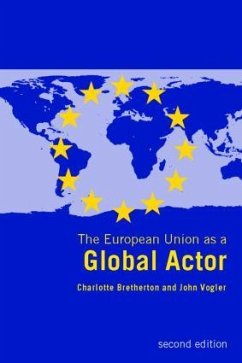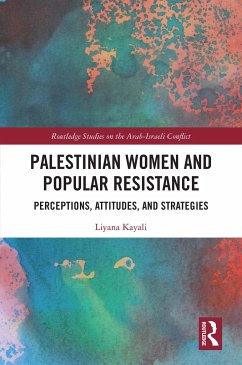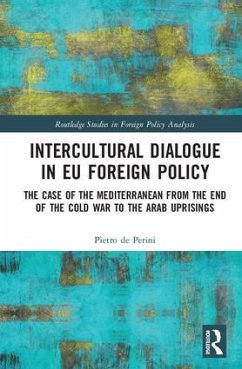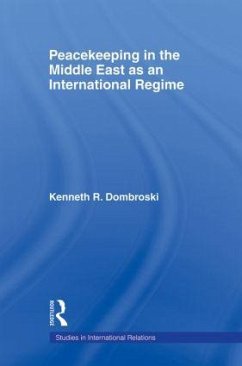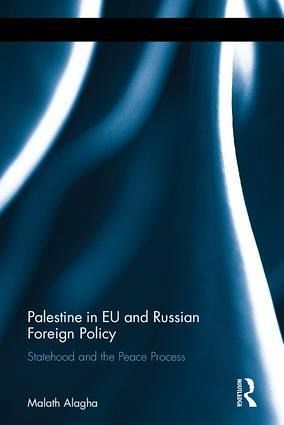
Palestine in EU and Russian Foreign Policy
Statehood and the Peace Process
Versandkostenfrei!
Versandfertig in über 4 Wochen
187,99 €
inkl. MwSt.
Weitere Ausgaben:

PAYBACK Punkte
94 °P sammeln!
This book uses the school of constructivism to provide a new understanding of EU and Russian foreign policy, and the countries' failure to speed up the process of establishing a Palestinian state, despite its designation as a priority in their involvement in the Middle East peace process. Palestinian statehood provides a telling example of how identity and Self-Other perception inform foreign policy-making by global actors. The book explains why the EU and Russia are so eager to be involved in any step towards a peace settlement, as well as showing to what extent the Self-perception of global ...
This book uses the school of constructivism to provide a new understanding of EU and Russian foreign policy, and the countries' failure to speed up the process of establishing a Palestinian state, despite its designation as a priority in their involvement in the Middle East peace process. Palestinian statehood provides a telling example of how identity and Self-Other perception inform foreign policy-making by global actors. The book explains why the EU and Russia are so eager to be involved in any step towards a peace settlement, as well as showing to what extent the Self-perception of global actorness maintains and boosts EU and Russian influence in the region.





